 | | | “In nature, nothing exists alone.” —Rachel Carson, Silent Spring | | | | | | As winter deepens, February arrives with a quiet intensity—a time when the chill of late winter coexists with a growing spark of anticipation for spring’s promise. Across campuses, softened daylight and the lingering winter air create a contemplative backdrop as students and faculty harness the season’s reflective mood to spark new ideas and forge meaningful connections. In this moment of subtle transition, we are called to unite our efforts, ensuring that every voice is valued, and that collective action paves the way for a more just and sustainable future. In the spirit of Black History Month, we celebrate the profound contributions of Black visionaries and trailblazers whose legacies of resilience, innovation, and community empowerment have enriched our shared history. We honor the struggles that paved the way for progress, to reflect on the narratives that have often been overlooked and commit ourselves to building a future where equity and environmental stewardship go hand in hand. At the Rachel Carson Council (RCC), we recognize that embracing Black History Month is not only about commemorating the past—it’s about energizing our present initiatives and empowering every community member to be a catalyst for meaningful change. 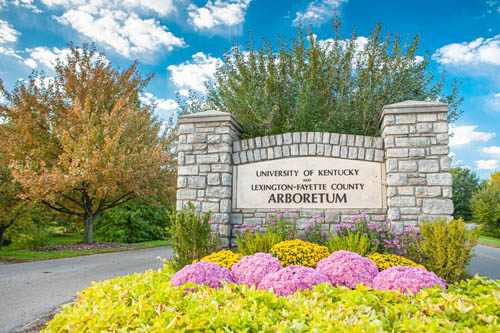 This month, Assistant Director of Campus and Civic Engagement Diego Tovar visited the University of Kentucky. Tovar connected with students and faculty dedicated to environmental advocacy and justice, inspiring strategized efforts for collaboration and opportunity. The RCC is thrilled to welcome the University of Kentucky as the 75th member of our Campus Network. Later in the month, RCC Assistant Director of Policy and Programs Joy Reeves visited campus partner St. Mary’s College of Maryland. Reeves, an award-winning cartoonist, led a “Comics Advocacy Workshop” to inspire the next generation of leaders to find creative ways to connect art with environmentalism. This month, Assistant Director of Campus and Civic Engagement Diego Tovar visited the University of Kentucky. Tovar connected with students and faculty dedicated to environmental advocacy and justice, inspiring strategized efforts for collaboration and opportunity. The RCC is thrilled to welcome the University of Kentucky as the 75th member of our Campus Network. Later in the month, RCC Assistant Director of Policy and Programs Joy Reeves visited campus partner St. Mary’s College of Maryland. Reeves, an award-winning cartoonist, led a “Comics Advocacy Workshop” to inspire the next generation of leaders to find creative ways to connect art with environmentalism. 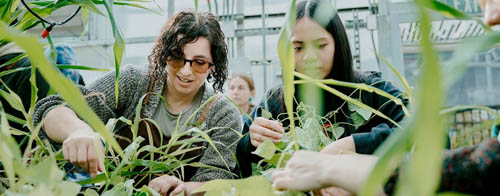 Across the nation, universities are forging new paths in climate justice and environmental research. San Francisco State University has reimagined its graduation requirements by weaving climate justice into its Environmental Sustainability curriculum, ensuring that students confront the disproportionate impacts of climate change on marginalized communities. Meanwhile, UC Berkeley’s newly established Climate and Society Center is driving an equitable transition to renewable energy through rigorous research and community collaboration. In marine conservation, educators are updating the narrative with a cutting-edge textbook that reflects today’s evolving challenges and policy tools, while Salisbury University has launched a pioneering Coastal Engineering major to equip future engineers with hands-on, project-based expertise. Across the nation, universities are forging new paths in climate justice and environmental research. San Francisco State University has reimagined its graduation requirements by weaving climate justice into its Environmental Sustainability curriculum, ensuring that students confront the disproportionate impacts of climate change on marginalized communities. Meanwhile, UC Berkeley’s newly established Climate and Society Center is driving an equitable transition to renewable energy through rigorous research and community collaboration. In marine conservation, educators are updating the narrative with a cutting-edge textbook that reflects today’s evolving challenges and policy tools, while Salisbury University has launched a pioneering Coastal Engineering major to equip future engineers with hands-on, project-based expertise. Yet challenges persist. Amid rapid environmental change and political turbulence, campuses are also grappling with complex issues of academic freedom and social equity. Contentious debates have emerged as influential voices call for drastic measures in response to policies affecting immigrant advocacy and DEI—highlighting the delicate balance between institutional accountability and free expression. These hurdles underscore that while progress is being made in rethinking sustainability and justice, the journey toward a more equitable and resilient future remains a collective, ongoing effort. This month’s “RCC Fellows Speak Out” section invites you to journey through both personal reflection and historical insight. In “Hope Meanders Like a Creek,” Shreya Chaudhuri's intimate encounter with Strawberry Creek in Berkeley reminds us of nature’s quiet persistence and the importance of pausing to truly connect with the living landscape around us. Cassie Varrige's equally compelling “The Enduring Legacy of Hazel Johnson,” honors a pioneer of the environmental justice movement and underscores that environmental history is inextricably linked to Black history. Together, these narratives inspire us to cherish our natural world and acknowledge the courageous efforts that have shaped a more equitable and sustainable future. 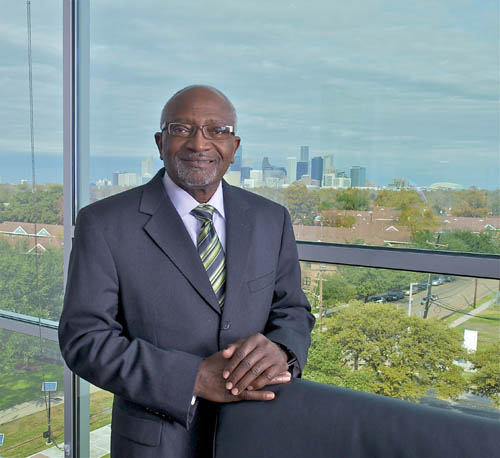 In “Roots of Resilience,” we recognize the extraordinary legacy of Robert Bullard, the pioneering environmental justice scholar and advocate who transformed our understanding of how race, class, and the environment intersect. Through groundbreaking research and fearless activism, Bullard exposed the disproportionate burdens borne by marginalized communities, igniting a nationwide call for equitable environmental policies. His relentless pursuit of truth—ignited early in his career—continues to inspire all who challenge the status quo, proving that it’s never too late to spark transformative change. In “Roots of Resilience,” we recognize the extraordinary legacy of Robert Bullard, the pioneering environmental justice scholar and advocate who transformed our understanding of how race, class, and the environment intersect. Through groundbreaking research and fearless activism, Bullard exposed the disproportionate burdens borne by marginalized communities, igniting a nationwide call for equitable environmental policies. His relentless pursuit of truth—ignited early in his career—continues to inspire all who challenge the status quo, proving that it’s never too late to spark transformative change.
Our “Books” section highlights Paolo Bacigalupi’s The Water Knife, a tale of dystopian suspense, environmental urgency, and socio-political critique. Through its narrative set in a drought-stricken American Southwest, Bacigalupi reminds us that when water becomes as valuable as gold, the fight for survival transcends mere necessity, urging us to confront the profound costs of corruption and neglect. As 2025 has become a time of great uncertainty, campuses remain at the forefront of shaping a fair and sustainable world. The dedication of students, faculty, and staff continues to drive progress and inspire optimism, even during significant obstacles. This RCC Campus Dispatch encapsulates their tenacity, creativity, and vision to construct a better tomorrow—one idea, one step, one community at a time. Stay informed. Stay engaged. And join us in amplifying these powerful stories from campuses nationwide. | | | | | | 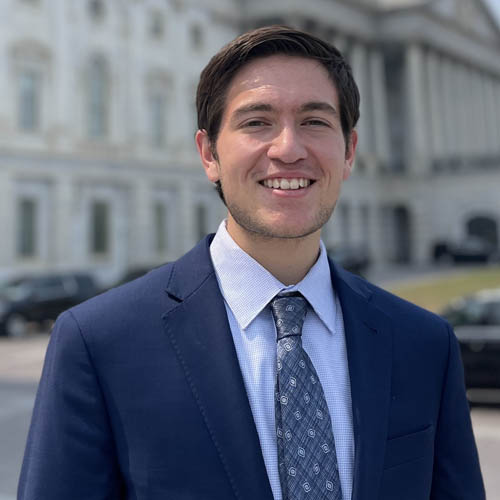 Diego Tovar — Assistant Director of Campus and Civic Engagement Diego Tovar — Assistant Director of Campus and Civic Engagement
Diego Tovar, Assistant Director of Campus and Civic Engagement, holds his master’s in Global Environmental Policy from American University and an undergraduate degree as a Udall Scholar in Ecosystem Science and Sustainability with a minor in Political Communication from Colorado State University. Diego has worked for the White House Council on Environmental Quality, the Environmental Protection Agency, the U.S. House of Representatives, and the Navajo Nation Washington Office focusing on climate justice and climate adaptation. | | | | | | Bluegrass and Green Future A cold February rain draped over the University of Kentucky as students bustled between classes. Despite the overcast sky, Lexington’s flagship university radiated warmth—a hub of intellectual curiosity, environmental stewardship, and impassioned advocacy. True to its commitment to blending scholarship with action, the University of Kentucky (UK) has taken bold steps in sustainability, implementing conservation and efficiency efforts that save $3–5 million annually and reduce emissions by over 50,000 metric tons of CO₂. | | | | | | | | SFSU Revises Graduation Requirement to Incorporate Climate Justice San Francisco State University (SFSU) has modified its graduation requirements to better incorporate climate justice, which focuses on the unequal impacts of climate change on marginalized and underserved populations and the ways frontline communities are often leaders in developing just climate solutions. With this change, SFSU has revised its existing undergraduate Environmental Sustainability (ES) graduation requirement to include climate change and climate justice. | | | | | | | | Introducing the Climate and Society Center at UC Berkeley UC Berkeley’s Institute for Research on Labor and Employment (IRLE), announced today the launch of a new research center, the Climate and Society Center (CSC), a groundbreaking initiative aimed at accelerating California’s equitable transition to renewable energy and zero-carbon emissions through rigorous research and community collaboration. The new Center, supported by a generous endowment gift, will address a crucial need for scientific analysis in environmental justice advocacy. | | | | | | | | Taking Bold Action Toward Environmental Justice A week after the University of Michigan celebrated the legacy of Dr. Martin Luther King Jr., the School for Environment and Sustainability (SEAS) honored his work at its own event—a panel discussion focused on keeping environmental justice at the forefront of sustainability work. The event, “Paving the Way: Taking Bold Action Toward Environmental Justice,” was held on January 27 and spotlighted bold leaders who are transforming the fields of environmental justice, energy and sustainability. | | | | | | | | Robert Bullard: Father of Environmental Justice Dr. Robert D. Bullard is widely recognized as the father of environmental justice. As a scholar, activist, and pioneering voice, Bullard transformed the landscape of environmental advocacy by linking racial and social inequities to environmental policies. His groundbreaking work illuminated the systemic pollution and degradation disproportionately burdening communities of color, fundamentally shifting the national dialogue on environmental protection and equity. | | | | | | | | We’re Making a New Marine Conservation Science and Policy Textbook. What Do You Want to Be In It? The leading textbook in Marine Conservation Biology (Norse and Crowder) is 20 years old. It’s great and it shaped the field for a generation, but a lot has happened since it came out. There are new conservation threats, new policy tools, and new research methods to study them. And in that time, we’ve radically changed how we approach a lot of these questions. | | | | | | | | SU Announces New Coastal Engineering Major Salisbury University is addressing the growing demand for licensed engineers as the first in Maryland to offer a coastal engineering major. The program focuses on solving problems in coastal environments and preparing students through hands-on, project-based instruction in not only physics and engineering but also geosciences and geographic information science. | | | | | | | | | | Stony Brook Powers Up with Environmental Bond Act Funding Stony Brook University will receive funding to design and construct multiple solar photovoltaic (PV) arrays across campus as part of Governor Kathy Hochul’s announcement of $150 million in climate resiliency grants. The funding, allocated through the Environmental Bond Act, aims to advance sustainability and energy efficiency at public colleges across New York State. Stony Brook was one of four SUNY campuses selected for funding, in addition to three CUNY campuses. | | | | | | | | Rutgers Science Webinar Plunges Into Ocean Exploration with More Than 265 Students More than 265 students from across the U.S. dove into the mysteries of the ocean and explored how STEM can address global environmental challenges during a virtual event hosted by Rutgers University’s Department of Marine and Coastal Sciences (DMCS). The students from the FIRST LEGO League, participated as part of their preparation for this year’s robotics competition. | | | | | | | | In California Wildfires, Climate and Health Collide As California authorities search for the causes of the Los Angeles County wildfires, many scientists agree that successive extreme weather events associated with climate change set up the dangerously dry conditions that led to the catastrophe. After decades of drought, California experienced two years of extremely heavy rainfall in 2022 and 2023 that allowed vegetation to flourish. | | | | | | | | Duke Reclamation Pond When an extreme drought strained the city of Durham’s utilities in 2010, Duke created a unique stormwater management pond to reduce its reliance on municipal water and to help conserve natural resources. Today, the pond saves the university 100 million gallons of potable water a year, while also serving as a lush outdoor learning lab for the Duke community. The Duke Reclamation Pond illustrates Duke’s commitment to creating a sustainable campus for future generations of the Duke and Durham community. | | | | | | | | Anxiety About Climate Change Is Spurring Action Is worry about climate change leading people to tune out or do those anxieties spur them to action? A new study published in npj Climate Action, led by researchers from the Yale Program on Climate Change Communication (YPCCC), suggests that it’s the latter. Using national surveys, the researchers found that 16% of adults report feeling at least some anxiety or depression from thinking about or experiencing the impacts of climate change. | | | | | | | | Protestors at UNC Asheville Rally to Protect Campus Urban Forest From Development UNC Asheville students and community members protested Saturday over the possibility of losing the 45-acre campus green space at the university. State and university officials have designated UNCA's urban forest, as well as the land leased to the Asheville Botanical Garden, as "millennial campus" properties. This means that this land is earmarked for potential development. | | | | | | | | Higher Ed Fights Back Against Trump’s DEI Order The American Association of University Professors and others argue in a new lawsuit that the executive orders violate the Constitution. College professors and university diversity officers are teaming up with nonprofits and local governments to challenge President Trump’s executive orders that target diversity, equity and inclusion programs in the federal government, higher education and the private sector. Those orders, they argue, violate the U.S. Constitution and have already caused much uncertainty on college campuses. | | | | | | | | Polarization is Battering Campuses. Here is How College Leaders Are Fighting Back. Colleges have historically been held up as pillars of free inquiry, constructive discourse and debate. But in an increasingly polarized era, campuses have become microcosms of the political divisions plaguing the country. Even previously nonpolitical statements can draw blowback, Marjorie Hass, president of the Council of Independent Colleges, said Thursday. | | | | | | | | RCC Hosts “Comics Advocacy Workshop” at St. Mary’s College of Maryland On February 13th, students at St. Mary’s College of Maryland (SMCM) explored environmental advocacy through an unconventional medium: comics. As a leading liberal arts college and longtime member of the Rachel Carson Council’s campus network, St. Mary’s was a prime venue for a practice as experimental and joyful as cartooning. The college’s waterfront campus, nestled in historic St. Mary’s City along the Chesapeake Bay, provided an inspiring backdrop for the class’s creative projects. | | | | | | | | Duke Names Seven New Climate Scholars The Duke University Climate Scholars Program has selected seven undergraduate students for its new cohort. Established in 2023, the cross-disciplinary program enables students to conduct faculty-mentored research on topics related to the climate crisis, in accordance with the Duke Climate Commitment. The new scholars join the inaugural cohort of eight scholars. | | | | | | | | It’s EPIC: Clark Opens New Greenhouse to Help U.S. Agriculture, Environment Space to enable research on food security, conservation, climate change-related efforts. Clark is celebrating the opening of a state-of-the-art greenhouse that launches a new avenue of scientific research at the University, with implications for sustainable farming, food security, conservation, and other climate change-related efforts in and outside of New England. | | | | | | | | Warren Wilson College Receives $1 Million Gift to Advance Academic Initiatives Warren Wilson College received an anonymous $1 million gift to support its academic programs, further strengthening the institution’s position as a leader in environmental and climate studies. This gift brings the College’s total philanthropic support to more than $13.5 million in the past three months, highlighting a growing commitment from donors to the College’s hands-on, experiential education that empowers students to explore solutions to real-world challenges. | | | | | | | | Furman’s Climate Resilience Work Helps Coastal Communities When Hurricane Helene struck the southeast, millions were caught unprepared for the resulting flooding and wind damage. A staff member and a student with Furman University’s Shi Institute for Sustainable Communities are working across South Carolina to make areas more resilient to the impacts of natural disasters and climate change. “Helene was a reminder that climate resilience is an important part of thriving communities,” said Shi Institute Executive Director Andrew Predmore. | | | | | | | | Hope Meanders Like a Creek Strawberry Creek runs through Berkeley. Her music is constant and comforting, yet often overlooked. To deepen my own connection with the creek, I decided to spend some time in silence with her, setting up my hammock on two redwood trees near a secluded part of Strawberry Creek in the Southside of campus. Though it’s my final year at Cal, this was the first time I intentionally carved out a date to sit with this enduring protector of the land. I have passed by this creek countless times, but knowing the creek means pausing in the present, not rushing past. | | | | | | | | The Enduring Legacy of Hazel Johnson Environmental history is Black history, and environmental justice leaders played a key role in connecting industrial pollutants to health issues caused by pollution in the air, water, and land. This February, we recognize and celebrate Hazel Johnson’s key role as the mother of the environmental justice movement. Hazel Johnson was born in New Orleans and moved to Chicago in 1955 with her husband, John. In 1962, Hazel moved with her young family to Altgeld Gardens on Chicago’s far South Side. | | | | | | | | UNC Journalism Dean Navigates Diversity Mission Amid DEI Restrictions Last May, the University of North Carolina at Chapel Hill's Board of Governors voted to eliminate all diversity, equity and inclusion (DEI) offices. At the state’s flagship, UNC Chapel Hill, cut at least 20 positions and reassigned nearly 30 more, resulting in around $5.4 million in spending cuts. The move aligned Chapel Hill with other public universities in states with Republican-controlled legislatures such as the University of Florida that have similarly “banned” diversity spending and programming. | | | | | | | | Kentucky Lawmakers Seek to Weaken Tenure, Restrict DEI College leaders in Kentucky have been bracing for legislative changes that would overhaul the higher education landscape, as Republican lawmakers have sought to remodel the sector. If passed, HB 424 would require every faculty member to be evaluated at least once every four years via a process established by their institutions’ governing boards. College presidents would not be excluded — they too would face the proposed review system. | | | | | | | | A Well-Connected NYU Parent Is Trying to Get Students Deported The founder of Mothers Against College Antisemitism says her 62,000-member Facebook group is influencing NYU policy. Amid the flurry of executive orders President Donald Trump signed on his first day of office, one New York University parent saw an opportunity. Citing an anti-immigration order that included language targeting those who “provide aid, advocacy, or support for foreign terrorists,” Elizabeth Rand posted a call to action on January 21. | | | | | | | | The Water Knife (Vintage, April 5, 2016)  The Water Knife, by Paolo Bacigalupi is a gripping near-future thriller set in a drought-ravaged American Southwest. Water has become more valuable than gold, and Angel Velasquez, a ruthless enforcer for the Southern Nevada Water Authority, ensures Las Vegas stays lush by cutting off supplies to others. When rumors of a powerful water source surface in Phoenix, Angel is sent to investigate. The Water Knife, by Paolo Bacigalupi is a gripping near-future thriller set in a drought-ravaged American Southwest. Water has become more valuable than gold, and Angel Velasquez, a ruthless enforcer for the Southern Nevada Water Authority, ensures Las Vegas stays lush by cutting off supplies to others. When rumors of a powerful water source surface in Phoenix, Angel is sent to investigate.
There, he encounters Lucy Monroe, a seasoned journalist, and Maria Villarosa, a young Texas migrant. Their fates intertwine as they navigate corruption, shifting alliances, and violence in a world where survival depends on water. Bacigalupi masterfully builds a bleak and plausible future, with searing prose that captures the oppressive heat and desperation of the landscape. The fast-paced narrative blends dystopian fiction with noir crime, exploring themes of power, corruption, and environmental collapse.
Click here to purchase __________
Diego Tovar — Assistant Director of Campus and Civic Engagement Diego Tovar, Assistant Director of Campus and Civic Engagement, holds his master’s in Global Environmental Policy from American University and an undergraduate degree as a Udall Scholar in Ecosystem Science and Sustainability with a minor in Political Communication from Colorado State University. | | | | | | RCC prides itself on its National Campus Network of more than 75 colleges and universities. We are working to engage faculty members, students, and administrators in our efforts for a more just and sustainable world. With our growing fellowship program, our presence on campuses across the country has never been greater. Contact RCC today to bring our staff to your campus for lectures, workshops, or meetings to help find the best ways to engage your faculty and students in the efforts against climate change, environmental justice, and the work of the Rachel Carson Council. Campus Visits with RCC President, Dr. Robert K. Musil 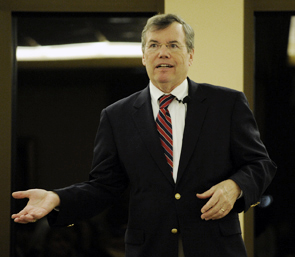 RCC President & CEO, Dr. Robert K. Musil, a national leader in climate change, environmental justice and health is available to book for in-person campus speaking events! Musil has been called “informative, challenging and inspirational all at once.” He is “motivational” with “intellectual depth” and “extraordinary impact.” RCC President & CEO, Dr. Robert K. Musil, a national leader in climate change, environmental justice and health is available to book for in-person campus speaking events! Musil has been called “informative, challenging and inspirational all at once.” He is “motivational” with “intellectual depth” and “extraordinary impact.”
Dr. Musil offers compelling campus lectures and visits involving classes, meetings with campus and community groups, consultations with faculty and administrators, or for Earth Day, Commencement, and other special events. Stays range from one to three days. Reduced fees are in place for 2025-2026 and can be designed to meet reduced budgets. To arrange a campus visit with Dr. Musil, contact the RCC President’s Office at bmusil2@yahoo.com The RCC also offers talks, classes, and workshops on student engagement, activism, sustainability, and the RCC Fellowship program with: Director of Communications, Claudia Steiner; Assistant Director of Campus and Civic Engagement, Diego Tovar; Associate Director of Policy and Programs, Theo Daniels and Assistant Director of Policy and Programs, Joy Reeves. To arrange, contact Assistant Director of Campus and Civic Engagement, Diego Tovar. | | | | | | | |  The Rachel Carson Council Depends on Tax-deductible Gifts From Concerned Individuals Like You. Please Help If You can. The Rachel Carson Council Depends on Tax-deductible Gifts From Concerned Individuals Like You. Please Help If You can. | | | |  Sign Up Here to Receive the RCC E-News and Other RCC Newsletters, Information and Alerts. Sign Up Here to Receive the RCC E-News and Other RCC Newsletters, Information and Alerts. | | | | | | | | | | | |